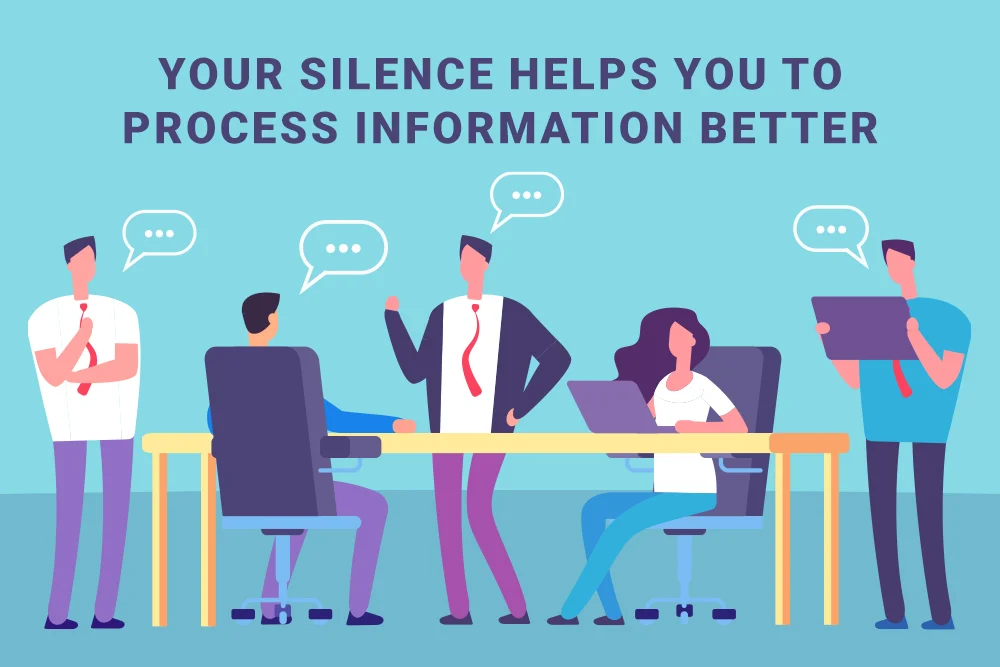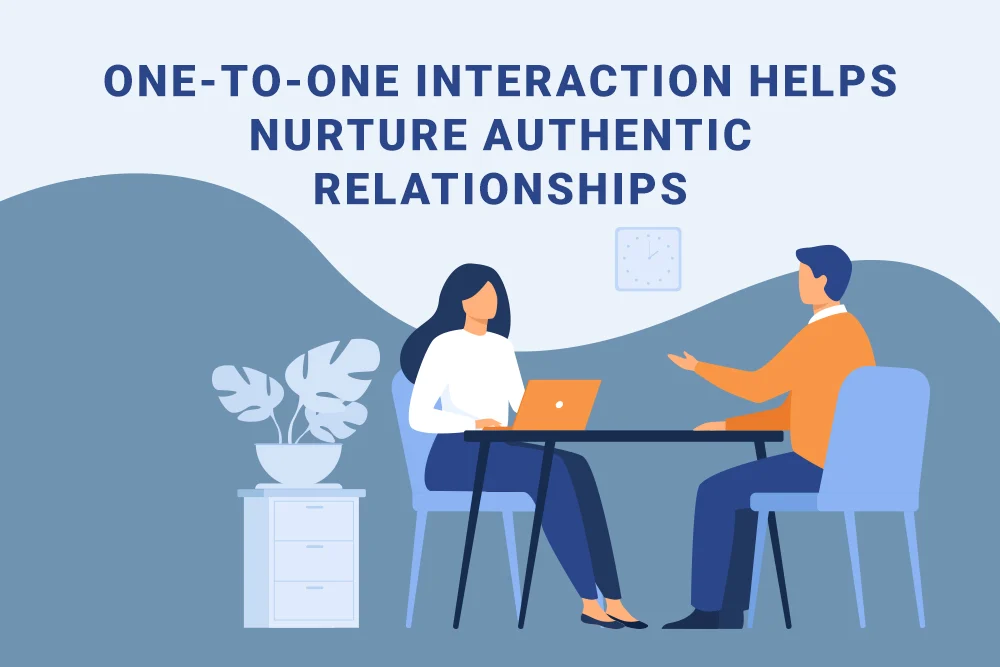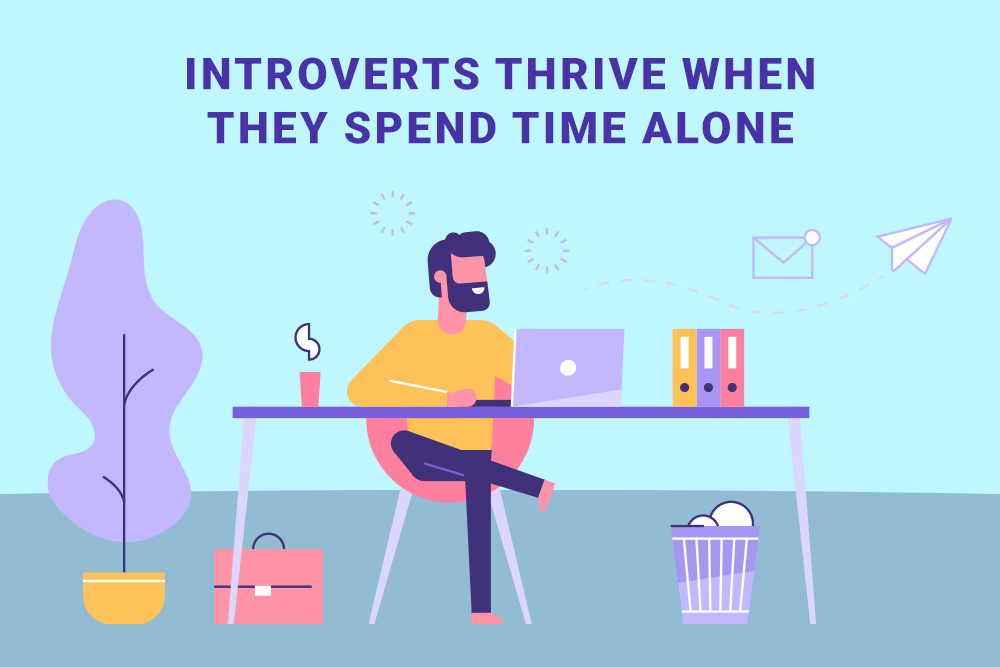Do you prefer spending time alone, rather than with a large group of people?
When you are working on a project, do you prefer to manage it independently?
During meetings, would you rather listen than speak?
If you answered ‘yes’ to these questions, you are likely to be an introvert.
According to Psychology Today, an introvert is a person who favours the “inner life of the mind over the outer world of other people.” Generally, introverts prefer being alone than with a company of people. They are not necessarily shy and can socialise well but in smaller groups.
In modern society, introverts tend to get less attention than their extroverted peers. But that doesn’t mean introverts are less competent at work. In fact, some of the world’s most successful people shaping world business and economy, are introverts.
United States President, Joe Biden, is known for his lifelong struggle with stuttering. Yet, he didn’t let that stop him from achieving his goal of becoming the president of the United States in 2020, after several failed attempts.
Another public figure, Google co-founder, Larry Page, is another introvert who rarely speaks in public, preferring to leave it to other colleagues to do so. Nonetheless, he was able to use his “quiet, intellectual nature” to his advantage, co-creating the Google search engine, and leading the company to become a technology powerhouse.
People who don’t make an effort to understand introverts may see them as reserved and lacking social skills. These perceptions may also be internalised by introverts, bringing down their self-esteem and self-worth.
Here’s a little reminder of the most enviable qualities introverts have, and how they can better harness them to stand out at work.

1. Their silence helps them process information better
Unlike their extroverted counterparts, introverts like to listen. In fact, they are particularly adept at active listening. That means, they listen without judgement, then proceed to reflect, clarify and summarise the information, to ensure they have understood it.
It’s their innate ability to process information internally that makes introverts such good listeners. Extroverts, on the other hand, are more inclined to join a conversation before fully comprehending what is going on, as they process information better through interaction. It’s no surprise then, that introverts are the go-to people when colleagues need a listening ear.
How they can harness this: Introverts can use their listening skills to identify opportunities to improve work processes or create new programs to enhance workplace efficiency. Doing so may put them in a better position for a promotion because they would have demonstrated the ability to go the extra mile.
2. Staying out of the spotlight gives introverts the chance to let their team shine
Most employees are unhappy when their team members take credit for their work. Fortunately, this doesn’t happen with introverted co-workers.
Dr Laurie Helgoe, the author of Introvert Power: Why Your Hidden Life is Your Hidden Strength, argues that introverts don’t feel the need to take the centre stage, which makes them more likely to give credit to their teammates for successes.
The fact that they prefer not to hog the limelight and choose to show their appreciation for their team members, makes introverts much more enjoyable to work with.
How they can harness this: Introverts build goodwill when they allow their colleagues to shine. They could consider tapping into this goodwill when they need help at work or opportunities to profile themselves in front of senior management. It’s likely their appreciative colleagues will be more than happy to help.

3. Their preference for one-on-one interactions nurtures authentic relationships
During networking events, extroverts may focus on speaking to as many people as possible. Such interactions may be too fleeting to make a lasting impact, and extroverts may not be able to reap the benefits of networking.
In contrast, introverts tend to interact with others one-on-one. Here, their good listening skills come in handy because they pay close attention to what is said, and have a genuine interest in getting to know the other person. During subsequent interactions, this trait allows them to make references back to their first conversation — impressing others and fostering stronger relationships.
How they can harness this: Good connections open more doors in the workplace. Introverts can consider leveraging their connections to find a suitable mentor who can advise them on their career paths, and guide them to perform better at work.
4. An introvert’s contemplative nature helps them make better decisions
Research suggests that introverts are better at making decisions than extroverts. They prefer to analyse the situation meticulously and think about it from different angles, instead of jumping to conclusions and making rash decisions.
This trait differs greatly from extroverts who tend to make quick decisions based on how they feel in the moment.
It is the same thoughtful nature that led software company PatSnap’s founder, Mr Jeffrey Tiong, to devise a unique method to screen potential candidates before deciding to hire them.
To understand the candidates better, Mr Tiong, a self-professed introvert, asks them to create a slideshow of key moments in their lives.
Elaborating, Mr Tiong said: “I show them my key moments first, which includes a happiness index throughout the years, photographs of my childhood, the cubicle I lived and worked in, my first paycheque and so on. This is to let them know what I’m about and how Patsnap came to be.”
He finds this method effective as it reveals the candidate’s true personality and values and helps him decide who the most suitable hire would be.
How they can harness this: Introverts can showcase their contemplative nature if they volunteer answers or suggestions during meetings to aid better decision making. If speaking at the meeting is too uncomfortable, they could share their thoughts in writing directly after.

5.Their independent nature makes them less susceptible to external pressure
By nature, introverts thrive when they have more alone time to think things through by themselves. This makes them highly independent workers who require little supervision. Since they don’t rely solely on external input to make their decisions, they are also less likely to be affected by peer pressure.
How they can harness this: Introverts can try volunteering for more individual projects to showcase their competency. To convince their superiors they are capable of handling these projects, introverts can develop a comprehensive plan of action and follow it up with regular updates, demonstrating their proactiveness and their commitment.
Clearly, introverts have many traits they can be proud of. And by capitalizing on them better, there’s no stopping how far they can go.















